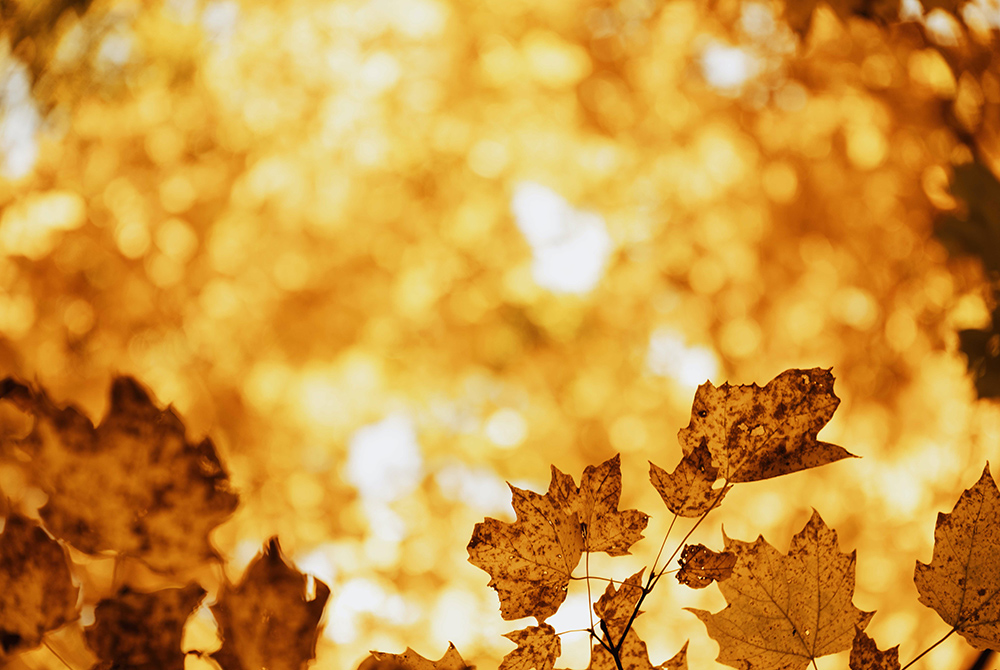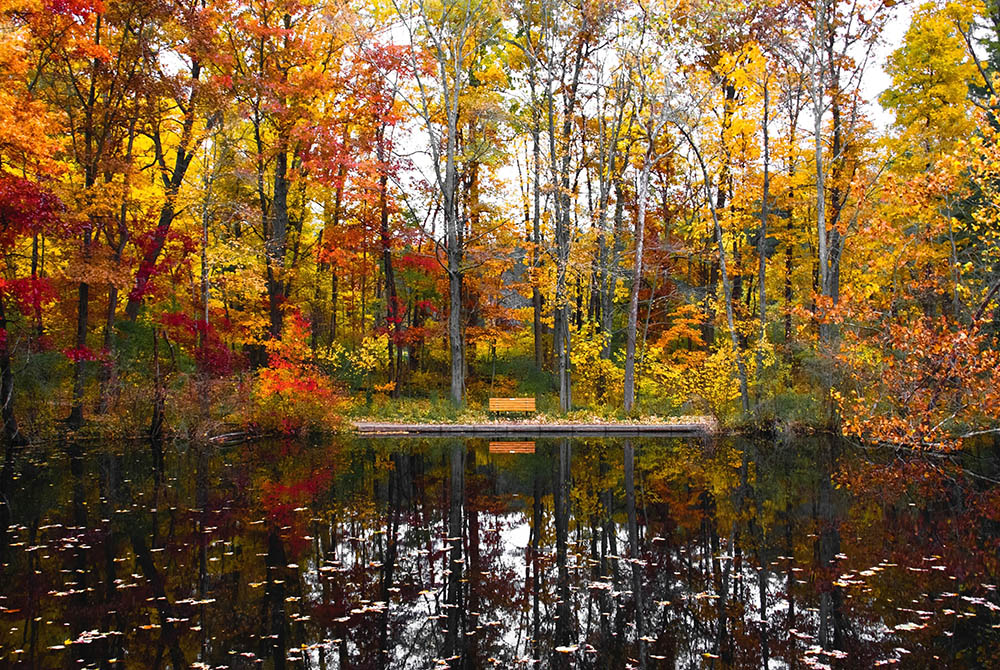
(Unsplash/Gerson Pancorbo)
I didn't know I missed the seasons until I moved back to my hometown in Ohio, after living in Arizona for four decades. Don't get me wrong. I love Arizona, with its daily forecast of "sunny and warm," to "sunny and hot," to an occasional exciting, dust-swirling "haboob." But observing the changing seasons through the window of my home office here in Ohio has brought me a deep grounding peace.
As summer moved into fall, I became mesmerized by the trees, wondering if they knew what was coming. Wondering if they knew they'd soon be standing naked in the cold. I wondered also if the leaves knew how beautiful they'd become, and if they were aware of their impending fate. They showed no sign of resistance. No holding on. No last look back. When it was time, they simply broke away and floated gently into the wind, trusting they were still connected, somehow, to all they'd ever known.
I could have used a few more weeks soaking in the beauty and wisdom of autumn, but before I knew it, the first snow fell in early November, a few days before my 81st birthday. It moved me into a whole new level of awe and mystery.
I started to think of my mortality, and wondered how much time I had left. I retired not that long ago, six months past my 79th birthday. I'd worked as a hospital chaplain and bereavement counselor in Arizona, and loved my job. My chaplain friend, Jay, and I would often meet up in the office to debrief. Sometimes we'd talk about difficult cases, but mostly we'd talk about the amazing people we saw that day.
"We have the best job in the world!" Jay would often say.
"I know. I'm never going to retire. We'll grow old together," I joked, though I was already the same age as Jay's mother. He'd tease me about it, and I forbade him to ever call me Mom!
I've been grieving my job every moment of every day since I left. During that first year, I had a recurring dream that I forgot I retired. I'd show up for work and my boss, Mario, would hire me back every single time. I texted him about it, telling him I think he owes me a paycheck about now. He replied, "Lol, I'm hiring. Miss you."
Advertisement
My work was immensely rewarding. It provided meaning, camaraderie, laughter, and most of all, working with an inspiring team, a shared sense of purpose. Every time I stepped foot in the hospital to begin my shift, I felt a surge of joyful anticipation. And I was good at it. I was able to connect with people because I find everyone interesting, once I get them to talk.
In my personal life, I'm pretty thin-skinned, but never at work with patients or families. One day the social worker called me to the trauma waiting room to meet with the wife of a patient who had just died unexpectedly, warning, "She's angry and cursing everyone in sight, saying we killed him. So be careful."
I took a deep breath, knocked lightly, then entered and introduced myself. When the woman heard the word chaplain, she screamed for all to hear, "Get the hell out of here and take your God with you!"
"No, no," I said. "This is not about God. I don't want you to be alone." She glared for a second, then allowed me to take a seat next to her where I remained for hours, listening, as she processed her grief, shock and rage.
So, of course, it was about God, but she didn't have to know that. God used me to provide an empathic, non-judgmental, loving presence to a distraught woman whose life had just been turned upside down.
That's how God works. Anonymously, at times. Maybe most times.

(Unsplash/Drew Barker)
This is my calling. Time stands still when I'm doing God's work, when I'm totally present to someone who desperately needs attention and love. Yet, I know nothing lasts forever. It's time to move on, I tell myself. And then I ask, move on to what?
I never thought about my mortality so much as I do now. It doesn't help that I've attended seven masked, socially distanced funerals since the pandemic began and ruined everyone's life. Though the vaccine will soon help, still, for now, death is everywhere. We're tired of it. All of it. Even we Catholics, who understand (some of us pretend to) the theology of suffering, have had enough.
Yet still, I think of dying. I ask, foolishly, because I really don't want to know, how much time I have left. How will things end? Will I simply keel over and be gone? Will I die in my sleep? Will I die from cancer or COVID-19? Will I languish in a nursing home with Alzheimer's (please, God, no)?
I guess I'm in good company; even a psalmist can sometimes indulge in morbid thoughts. "Lord, let me know my end, and what is the measure of my days; let me know how fleeting my life is" (Psalm 39:4).
But the leaves are beautiful, even if they don't know it. And after every winter, spring comes again. And everything comes alive — blooming, greening, sweetening, coloring the view out my window. I think of Franciscan Fr. Richard Rohr's perspective on nature, "God's First Bible," and how Christ is, and always was, embedded in the material world, embedded in me.
Reflecting on the four seasons gives me hope and courage to move on. It is a visual reminder that everything changes. Everything passes. Everything moves on to where it's supposed to be, in God's timing.
And with a little help, I will, too.





